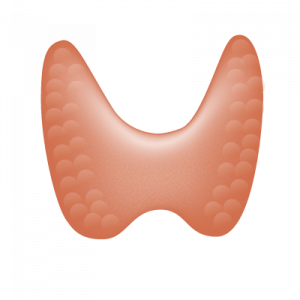It is almost impossible not to associate the word pregnancy with the word hormone. And even though these two things can have distinct meanings in many different ways, there are some connections we often don’t think about, such as the role of the thyroid in pregnancy. After all, is it possible for thyroid problems to occur during pregnancy? And how can you treat this issue without letting it affect the baby? If you’re curious to learn more, read this article until the end and find out. But first, we need to explain exactly what the thyroid is.
What is the Thyroid?
The thyroid is a gland that helps regulate several major organs in our body, such as the heart, liver, kidneys, and even the brain. This gland is responsible for the development of children and adolescents and even influences a woman’s menstrual cycles. By releasing the T3 and T4 hormones to all these parts of the body in the right amounts, the thyroid ensures that the body functions properly.When there are thyroid problems, this can affect a person in many ways, including fertility issues. And although this is easily diagnosable and can happen at any stage of a person’s life, these problems must be treated so there are no negative consequences, especially when we talk about the thyroid in pregnancy.
Thyroid Problems
The most common thyroid disorders occur when the gland releases incorrect amounts of hormones into the body, either in smaller or greater quantities than expected. However, many diseases can also arise from problems in this organ, such as:
- Goiter
- Subacute thyroiditis
- Medullary thyroid carcinoma
- Thyroid cancer
- Chronic thyroiditis
Although these are some of the diseases that can stem from thyroid issues, the most common are hypothyroidism and hyperthyroidism, which are, respectively, an insufficient or excessive release of hormones by the gland. As these are the most common diseases, it is about their relationship with pregnancy that we will talk about in today’s article.
Hypothyroidism in Pregnancy
Hypothyroidism happens when the thyroid does not produce enough hormones for the body’s needs. Some of the most common symptoms of this disease are:
- Fatigue
- Constipation
- Weight gain
- Hair loss
- Tendency towards depression
When a woman has hypothyroidism during pregnancy, not only is she at risk, but so is the baby. First, because this disease can cause artery disorders, such as heart failure, which can end up affecting the baby’s development and resulting in serious problems.It is estimated that up to 6% of pregnant women develop hypothyroidism during pregnancy, so it is very important to keep your tests up to date when you’re planning to become pregnant, and if you have any such problems, to treat them before conceiving. That way, you ensure that both your health and your baby’s health remain intact during pregnancy.
Hyperthyroidism in Pregnancy
Another problem that can also occur is elevated thyroid hormone during pregnancy, which is called hyperthyroidism. Unlike the condition we mentioned above, in this case the hormones are produced in excess, and some of the symptoms this disease causes are:
- Increased appetite
- Sudden weight loss
- Excessive sweating
- Anxiety and nervousness
It is well known that pregnancy is a real storm of hormones in a woman’s body. And for this very reason, when the thyroid gland presents this kind of dysfunction, significant problems can occur. The main complications this disease brings for a pregnant woman are:
- Risk of miscarriage
- Pre-eclampsia
- Heart failure
- Premature placental abruption
In addition to causing various problems for the mother, which can also have effects later, such as during breastfeeding, hyperthyroidism in pregnancy also poses a danger to the baby, since the baby may suffer several complications, such as:
- Malformations
- Goiter
- Premature birth
How to Treat Thyroid Problems in Pregnancy?
Although these are issues that can have serious consequences, they can be easily diagnosed and, if properly treated, pose little danger to a pregnant woman. It is also important to highlight that the earlier these problems are identified, the greater the chances that no negative consequences will occur.If a woman already has a history of thyroid problems, it is always important to have tests done before getting pregnant and, even after, to be aware that these issues may occur due to the manifestation of various types of hormones in her body during this time.When it is not possible to prevent these diseases, a doctor will prescribe the necessary medications in the appropriate amounts for each case, and if done correctly, there will be no side effects for the mother or for the baby.Thyroid problems in pregnancy are not uncommon, but they need to be treated properly so that no more serious consequences occur. For this, it is very important to consult your doctor regularly and follow the recommendations given. That is the only way you can be sure that thyroid and pregnancy problems are being managed, and you can focus on other more important matters during this very special time in your life.












